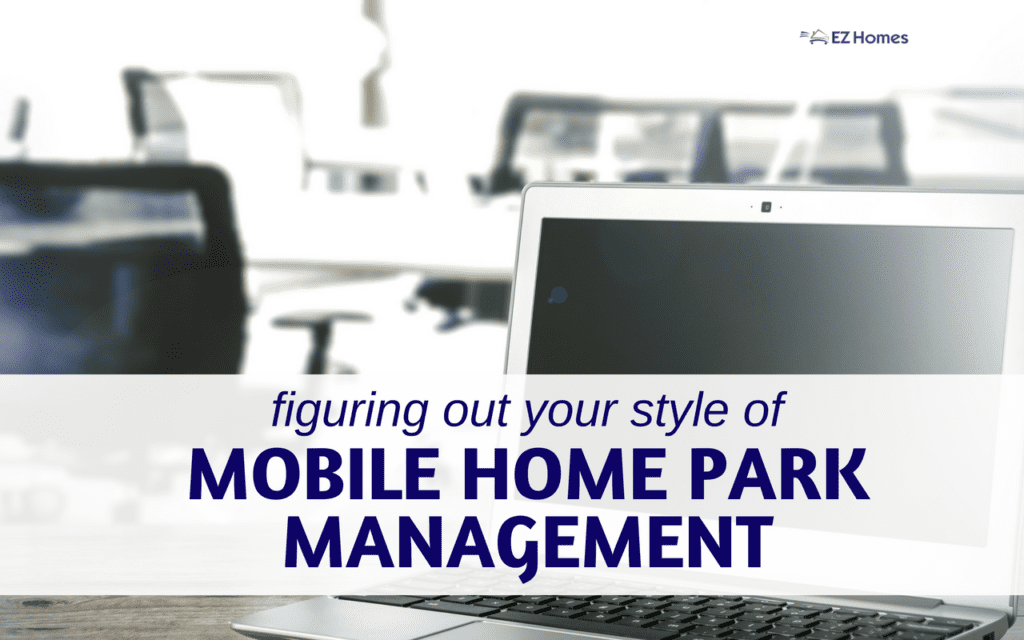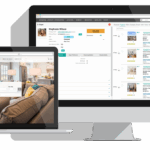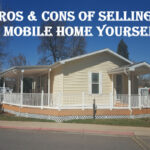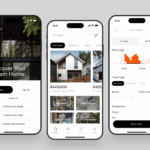Top software solutions for mobile home park owners are revolutionizing the way property managers operate, making everyday tasks more efficient and tenant interactions smoother. In today’s fast-paced world, the importance of technology in managing mobile home parks cannot be overstated, as it offers tools that streamline operations, enhance communication, and ultimately lead to improved tenant satisfaction. Embracing these software solutions allows owners to focus on what truly matters: building community and ensuring a thriving environment for residents.
As we delve deeper into the various software options available, we’ll uncover the essential features that every mobile home park management tool should possess, explore the myriad of solutions on the market, and understand how these technologies can transform property management practices. From property management to accounting and tenant communication, the right software can drastically change the dynamics of mobile home park ownership.
Overview of Software Solutions for Mobile Home Park Owners
In the rapidly evolving landscape of property management, software solutions have emerged as indispensable tools for mobile home park owners. These platforms facilitate a myriad of tasks necessary for the effective administration of properties, from tenant management to financial reporting. The importance of these solutions cannot be understated, as they streamline operations, enhance communication, and ultimately contribute to the profitability of mobile home parks.The role of software in managing mobile home parks extends beyond mere convenience.
It encompasses comprehensive functionalities that address specific needs unique to mobile home management. Key features that an effective software solution should provide include tenant and lease tracking, maintenance management, payment processing, and reporting capabilities. By integrating these features, property owners can better manage day-to-day operations and improve tenant satisfaction.
Key Features of Mobile Home Park Management Software
The relevance of various software features in mobile home park management is paramount for operational efficiency and tenant engagement. Below are critical features that contribute to the effectiveness of property management solutions:
- Tenant Management: A robust system for tracking tenant information, lease agreements, and renewals ensures that owners maintain accurate records and improve tenant relations.
- Maintenance Tracking: This feature allows owners to record maintenance requests, assign tasks, and monitor progress, which is essential for maintaining property standards and tenant satisfaction.
- Online Payment Processing: Facilitating easy online rent payments can significantly reduce late payments and streamline financial reporting for property owners.
- Reporting and Analytics: Comprehensive reporting tools provide insights into occupancy rates, income, expenses, and more, assisting owners in making informed management decisions.
- Communication Tools: Efficient communication platforms enable property owners to engage with tenants easily, addressing issues and disseminating important information promptly.
The benefits of adopting technology in property management extend into numerous facets of operations. By leveraging software solutions, mobile home park owners can automate mundane tasks, thereby allowing them to focus more on strategic decision-making and community building.
“The integration of technology in property management results in enhanced operational efficiency and improved tenant relationships, ultimately leading to increased profitability.”
In addition to operational efficiency, technology fosters a more transparent relationship between management and residents. Automated payment reminders, for instance, help to maintain financial stability for both parties. Furthermore, software solutions can facilitate the onboarding process for new tenants, providing them with critical information about the community and its amenities. By embracing these technological advancements, mobile home park owners not only streamline their management processes but also create a more satisfactory living environment for their tenants.
Types of Software Solutions Available

The landscape of mobile home park management has evolved significantly with the advent of specialized software solutions that cater to the unique needs of property owners. These tools not only enhance operational efficiency but also facilitate effective communication with tenants, asset management, and financial oversight. Understanding the different types of software available is crucial for mobile home park owners seeking to optimize their operations and improve tenant satisfaction.Various categories of software solutions are designed to address different facets of mobile home park management.
Each category plays a unique role in streamlining processes and enhancing productivity. The following list Artikels the primary types of software solutions relevant to mobile home park owners:
- Property Management Software
- Accounting Software
- Tenant Communication Software
- Maintenance Tracking Software
- Reporting and Analytics Software
The distinction between property management software and accounting software is essential for effective mobile home park management. Property management software encompasses a broad range of functionalities, including lease tracking, tenant screening, and rent collection. This software is designed to manage the day-to-day operations of rental properties, providing tools for tenant relations and maintenance requests. In contrast, accounting software specifically focuses on the financial aspects of property management.
It aids in budgeting, expense tracking, and financial reporting, ensuring that owners maintain accurate records of their financial health.
Specialized Software for Tenant Communication and Maintenance Tracking
Effective communication with tenants and efficient maintenance tracking are critical for maintaining tenant satisfaction and property value. Specialized software solutions in these areas help bridge the gap between owners and residents, fostering a more harmonious living environment. Tenant communication software often includes features such as notifications for rent due dates, announcements, and direct messaging capabilities. These tools ensure that tenants are kept informed about important updates and can easily reach out to property management with concerns or queries.
Notable examples include platforms like “Buildium” and “TenantCloud,” which offer integrated communication solutions.Maintenance tracking software plays an equally vital role in property management. Such software allows owners and property managers to log maintenance requests, assign tasks to maintenance personnel, and track the status of repairs. This ensures that issues are addressed promptly, contributing to tenant satisfaction and property upkeep. Solutions like “Maintenance Connection” and “Property Meld” are designed specifically for this purpose, providing comprehensive tracking and reporting functionalities.The integration of these software solutions not only enhances operational efficiency but also fosters positive tenant relationships, which are vital for the long-term success of mobile home parks.
Top Software Solutions
The realm of mobile home park management has been revolutionized by advanced software solutions tailored to meet the unique needs of park owners. These platforms facilitate efficient operations, enhance tenant relations, and streamline financial management. Selecting the right software is pivotal, as it can significantly influence the overall productivity and success of a mobile home park.Understanding the multifaceted offerings of these solutions can guide owners in making informed decisions.
The following table delineates a comparison of leading software options, highlighting their features and pricing structures.
| Software Solution | Key Features | Pricing |
|---|---|---|
| Rentec Direct | Online payments, tenant screening, maintenance tracking | Starting at $35/month |
| PropertyWare | Accounting, reporting, CRM integration | From $1.25/unit/month |
| MHC Software | Lease management, marketing tools, resident portal | Contact for pricing |
| AppFolio | Mobile apps, online rent collection, built-in marketing | Starting at $1/unit/month |
| TenantCloud | Accounting, task management, tenant communication | Free for up to 12 units, paid plans start at $12/month |
User Interface and Ease of Use
The interface design and usability of software solutions are crucial for facilitating effective management by mobile home park owners. A user-friendly interface fosters better engagement from staff and can minimize training time for new users.
- Rentec Direct boasts a clean dashboard that allows for easy navigation between features. The software’s intuitive design enables users to manage tasks efficiently, attracting positive feedback regarding its usability.
- PropertyWare features a comprehensive interface with a myriad of options, which might initially seem overwhelming. However, once familiarized, users appreciate its depth and capability to handle complex management tasks effectively.
- MHC Software emphasizes a straightforward design that prioritizes essential functions, making it accessible for tech-savvy users and novices alike. The ease of access to vital information enhances the overall user experience.
- AppFolio is celebrated for its modern, responsive design that caters to mobile users. The platform’s ease of use is frequently noted in customer reviews, especially for its seamless online payment system.
- TenantCloud offers a simplistic layout, focusing on essential features without unnecessary complexities. Its straightforward design allows users to quickly adapt and utilize the software’s capabilities effectively.
Customer Support Services
The quality of customer support provided by software solutions can significantly impact user experience and satisfaction. Reliable support is essential for addressing issues promptly and ensuring smooth operations.
- Rentec Direct offers a robust customer support system, including live chat and email support. Users commend the responsiveness of the support team, which is vital for resolving urgent issues.
- PropertyWare provides extensive resources such as FAQs and tutorial videos, along with phone support. Although some users suggest response times could improve, the resources available are considered comprehensive.
- MHC Software emphasizes personalized customer service with dedicated account managers. This approach allows for tailored support but may vary in availability depending on the assigned personnel.
- AppFolio features a dedicated support team accessible via phone and email, with a reputation for quick and effective assistance. Additionally, users have access to a wealth of online resources for self-help.
- TenantCloud incorporates a user-friendly support ticket system and community forums, facilitating peer-to-peer assistance. While some users report slower response times, the platform’s self-help resources mitigate this concern.
Evaluation Criteria for Selecting Software
The selection of software solutions for mobile home park management is a critical decision that can significantly influence operational efficiency and tenant satisfaction. In a landscape where technology continually evolves, understanding the key evaluation criteria becomes paramount for park owners aiming to streamline their management processes. This section will delve into the essential factors that should guide the decision-making process, highlighting the importance of scalability, integration, and user feedback.
Key Criteria for Software Selection
When evaluating software for mobile home park management, several key criteria should be meticulously considered to ensure that the chosen solution aligns with both current needs and future growth. The following points serve as foundational considerations:
- Usability: The software should offer an intuitive user interface that requires minimal training for staff, enhancing productivity and minimizing operational delays.
- Scalability: As mobile home parks expand or evolve, the software must be capable of accommodating increased data volume and functionality without significant changes or disruptions.
- Integration Capability: The ability to integrate seamlessly with existing systems—such as accounting, leasing, and maintenance management—ensures a cohesive management experience and maximizes the use of resources.
- Customer Support: Reliable customer service and technical support are critical for resolving issues promptly and ensuring smooth operations.
- Cost-Effectiveness: Evaluating the total cost of ownership, including initial costs, maintenance, and potential hidden fees, is essential in determining the financial feasibility of adopting a specific software solution.
Importance of Scalability and Integration
Scalability and integration are vital components in the lifecycle of mobile home park management software. Scalability allows the software to grow alongside the park, accommodating new features and increasing demands without necessitating a complete overhaul of the system. For instance, a mobile home park that initially manages 50 units may expand to 200 units in a few years; the software must efficiently handle this growth without loss of performance.Integration with existing systems enhances operational efficiency.
A software solution that syncs with accounting programs, CRM systems, and maintenance tracking tools creates a unified ecosystem, reducing the risk of errors and ensuring comprehensive data visibility. For example, a mobile home park utilizing a property management software that integrates directly with accounting software can automate billing processes, thereby streamlining cash flow management.
User Feedback as a Deciding Factor
User feedback plays a crucial role in the software selection process, providing insights into real-world performance and usability. Engaging with current users through reviews, forums, or testimonials can illuminate common challenges and strengths associated with specific software solutions. For instance, a park owner might discover through user reviews that a particular software excels in tenant communication features, significantly enhancing resident satisfaction.
Conversely, feedback may reveal issues such as slow customer service response times or complicated navigation that could deter potential users. Actively seeking and analyzing this feedback can inform better decision-making, ensuring the chosen software not only meets technical specifications but also resonates with user experience and expectations.
Implementation Strategies
The successful implementation of software solutions in mobile home parks requires meticulous planning and execution. This process not only involves technical aspects but also a strong focus on the human elements, including training staff and residents, addressing resistance to change, and ensuring a smooth transition from old systems to new technologies. A structured implementation strategy can help mitigate common pitfalls and enhance the overall effectiveness of the new software.A step-by-step guide for implementing new software in a mobile home park includes several critical phases.
Each phase must be carefully executed to ensure a seamless transition and optimal utilization of the software.
Step-by-Step Implementation Guide
The following phases Artikel a pragmatic approach to software implementation, emphasizing collaboration and adaptability:
- Needs Assessment: Evaluate specific requirements of the mobile home park, including staff capabilities and resident engagement to determine the most suitable software solution.
- Vendor Selection: Research potential software vendors, comparing features, pricing, and support services. Opt for a vendor that demonstrates experience in the mobile home park sector.
- Project Planning: Develop a detailed implementation plan that includes timelines, resource allocation, and defined roles and responsibilities for staff members.
- Data Migration: Prepare for the transition of existing data to the new system. This may involve cleaning and formatting data to ensure compatibility with the new software.
- Software Installation: Collaborate with the vendor for the installation process, ensuring that the necessary hardware and network configurations are in place.
- Staff Training: Conduct comprehensive training sessions for staff, focusing on software functionalities and how to troubleshoot common issues.
- Resident Orientation: Organize workshops or informational sessions to introduce residents to the new software, highlighting how it will enhance their experience within the park.
- Feedback and Adjustment: After the software goes live, solicit feedback from both staff and residents to identify any issues or areas for improvement, making necessary adjustments as needed.
- Ongoing Support: Establish a support system for continuous assistance, ensuring that both staff and residents have access to help when needed.
Training Options for Staff and Residents
Effective training is pivotal for ensuring that both staff and residents can maximize the benefits of the new software. Various training options can be utilized to cater to diverse learning preferences:
“Education is not the filling of a pail, but the lighting of a fire.” – W.B. Yeats
A comprehensive training program may include:
- In-Person Workshops: Hands-on training sessions where staff and residents can practice using the software with guidance from knowledgeable trainers.
- Online Tutorials: Video tutorials and webinars that can be accessed at any time, allowing users to learn at their own pace.
- User Manuals: Detailed documentation providing step-by-step instructions and troubleshooting tips for reference.
- Peer Training: Designating tech-savvy staff members as champions who can assist their colleagues and residents with software navigation.
- Feedback Mechanisms: Creating channels for users to voice their challenges and successes, fostering a community of learning and improvement.
Common Challenges and Solutions during Implementation
The implementation of new software is often fraught with challenges that can hinder adoption and efficiency. Identifying these challenges beforehand allows for proactive solutions:
“The greatest enemy of knowledge is not ignorance, it is the illusion of knowledge.” – Daniel J. Boorstin
Common challenges include:
- Resistance to Change: Many staff and residents may be accustomed to existing systems. To overcome this, highlight the benefits of the new software through clear communication and demonstrative examples.
- Technical Difficulties: Initial software glitches can frustrate users. Ensure that robust technical support is available during the early phases of implementation to address issues swiftly.
- Inadequate Training: Insufficient training can lead to misunderstandings and misuse of the software. Tailor training programs to meet user needs and learning styles for better engagement.
- Data Migration Errors: Poorly executed data migration can result in lost or corrupted information. Conduct rigorous testing of the migrated data before going live.
By meticulously addressing these aspects, mobile home park owners can successfully implement software solutions that enhance operational efficiency and improve the living experience for residents.
Case Studies of Successful Software Integration
The integration of software solutions in mobile home parks has proven to be transformative, optimizing operations and enhancing tenant satisfaction. These case studies serve as exemplars of how strategic software implementation can lead to substantial benefits, streamlining management processes and improving resident experiences. Through the exploration of real-world scenarios, we can glean insights into effective software applications within this unique sector.
Green Acres Mobile Home Park
Green Acres Mobile Home Park, situated in the Midwest, embarked on a comprehensive software integration strategy to address inefficiencies in rent collection and maintenance requests. Before adopting a property management software solution, the park faced high delinquency rates and sluggish communication between management and residents. The software introduced an online payment system and a tenant portal for maintenance requests, significantly altering the operational landscape.
The impact of this software was immediate and profound:
- Rent Collection Efficiency: The online payment system reduced late payments by 40%, as tenants could now schedule automatic payments.
- Tenant Satisfaction: The maintenance request portal led to a 30% reduction in response times, which greatly enhanced resident satisfaction.
- Data Management: The software enabled management to analyze trends in maintenance requests, allowing for proactive solutions to recurring issues.
The lessons learned from Green Acres emphasize the importance of user-friendly interfaces and the necessity of staff training in leveraging new technologies to their fullest potential.
Sunnyvale Mobile Home Estates
Sunnyvale Mobile Home Estates, located in a rapidly growing suburban area, faced challenges in managing increased tenant turnover and communication. The park management chose to implement a software solution that included features such as tenant screening, lease management, and automated communication tools. This integration aimed to streamline operations and enhance resident engagement.
The results were noteworthy:
- Improved Tenant Screening: The software’s integrated screening process reduced the time needed to find suitable tenants by 50%, minimizing vacancy periods and associated costs.
- Enhanced Communication: Automated notifications and reminders regarding lease renewals and community events increased tenant participation in park activities by 20%.
- Operational Transparency: By providing tenants with access to their account information, the software fostered a culture of trust and transparency between management and residents.
The experience at Sunnyvale highlighted the necessity of aligning software capabilities with the unique needs of the community, ensuring that both management and tenants reap the benefits.
Maplewood Estates
Maplewood Estates, a family-run mobile home park in a rural area, implemented a cloud-based property management system to manage their operations more effectively in response to rising operational costs. The software incorporated various modules for accounting, maintenance, and tenant engagement, allowing for a cohesive management approach.
Key outcomes from this implementation included:
- Cost Savings: Automated invoicing and accounting procedures decreased administrative costs by 25%, enabling the park to reinvest in infrastructure improvements.
- Maintenance Tracking: The software’s tracking features allowed management to prioritize urgent maintenance issues, resulting in a notable increase in tenant retention.
- Community Building: Online forums and event calendars fostered a sense of community, leading to improved tenant relations and a stronger park culture.
Maplewood’s journey underscores the value of viewing software as not just a tool for efficiency, but as a means to enhance community dynamics and engagement.
“Software integration in mobile home parks is not merely about technological advancement; it is a strategic approach to enhance operational efficacy and tenant well-being.”
Future Trends in Mobile Home Park Software
The landscape of mobile home park management is evolving rapidly, driven by technological advancements and changing tenant expectations. As property owners seek to enhance operational efficiency and tenant satisfaction, the integration of innovative software solutions becomes paramount. This section explores the future trends shaping mobile home park software, focusing on emerging technologies, the role of data analytics, and evolving tenant demands for digital communication and services.
Emerging Technologies Impacting Mobile Home Park Management, Top software solutions for mobile home park owners
Several emerging technologies are poised to significantly influence mobile home park management software. The integration of artificial intelligence (AI) and machine learning (ML) is at the forefront, providing enhanced predictive analytics capabilities. These technologies allow property managers to forecast trends in occupancy rates, maintenance needs, and rental prices by analyzing historical data and tenant behaviors.
Another transformative technology is the Internet of Things (IoT), which facilitates real-time monitoring of park facilities. IoT devices, such as sensors for utilities and security systems, can feed valuable data into management software, enabling proactive maintenance and improved safety measures. As these technologies become more accessible and affordable, their adoption among mobile home park owners is likely to increase, leading to more efficient operations.
Data Analytics Enhancing Decision-Making
Data analytics plays a crucial role in refining decision-making processes for mobile home park owners. By leveraging comprehensive data sets, property managers can gain actionable insights that inform their strategic planning and operational adjustments. For instance, analyzing tenant demographics, payment histories, and maintenance requests can reveal patterns that help managers identify areas needing attention or improvement.
The implementation of advanced analytics tools can enhance financial forecasting, allowing owners to simulate various scenarios based on occupancy rates and market trends. This proactive approach to financial management enables property owners to make informed decisions regarding pricing strategies and budget allocations. As the emphasis on data-driven decision-making continues to grow, investing in robust analytics capabilities will be essential for mobile home park managers seeking to stay competitive.
Changes in Tenant Expectations for Digital Communication and Services
Tenant expectations are evolving in parallel with advancements in technology, particularly concerning digital communication and service delivery. Modern tenants increasingly demand seamless online interactions, including digital lease agreements, online rent payments, and prompt responses to maintenance requests via mobile applications. This demand is indicative of a broader shift towards convenience and accessibility in property management.
Furthermore, effective communication through digital platforms is becoming a necessity. Tenants now expect timely updates about community events, maintenance schedules, and emergency notifications via mobile apps or automated messaging services. These platforms not only enhance tenant engagement but also foster a sense of community within the mobile home park.
The emergence of self-service portals is another significant trend, offering tenants the ability to manage their accounts, submit requests, and access important documents online. This not only increases tenant satisfaction but also alleviates administrative burdens for property managers. As these expectations solidify, mobile home park owners will need to prioritize technological solutions that cater to the digital preferences of their tenants, ensuring a modern and responsive living environment.
Ultimate Conclusion: Top Software Solutions For Mobile Home Park Owners
In conclusion, as the landscape of mobile home park management transforms, the integration of innovative software solutions emerges as a cornerstone for success. Through the lens of case studies and future trends, we see how technology not only streamlines operations but also shapes tenant expectations and enhances their overall experience. By choosing the right software with careful consideration of scalability, user feedback, and implementation strategies, mobile home park owners can position themselves for long-term success and create thriving communities that benefit both property owners and residents alike.




